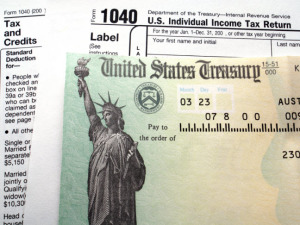 Today’s top story: 5 cheaper alternatives to popular vacation spots. Also in the news: How credit unions fit in your financial life, how to prepare for an economic downturn, and the fee the IRS is waiving for more than 400,000 filers.
Today’s top story: 5 cheaper alternatives to popular vacation spots. Also in the news: How credit unions fit in your financial life, how to prepare for an economic downturn, and the fee the IRS is waiving for more than 400,000 filers.
5 Cheaper Alternatives to Popular Vacation Spots
Save some money while still having a great trip.
How Credit Unions Fit in Your Financial Life
An alternative to traditional banking.
How to Prepare for an Economic Downturn
Don’t be caught off guard.
The IRS will waive this 2018 tax penalty for more than 400,000 filers
Waiving the underpayment fee.
 Today’s top story: Apps that encourage you to spend. Also in the news: Advice for weaning your grown kids off your credit cards, why some people don’t mind overpaying the IRS, and how to protect yourself from falling interest rates.
Today’s top story: Apps that encourage you to spend. Also in the news: Advice for weaning your grown kids off your credit cards, why some people don’t mind overpaying the IRS, and how to protect yourself from falling interest rates. Today’s top story: The IRS isn’t having any of these reasons not to pay taxes. Also in the news: What to buy (and skip) in April, how to shop for used clothes – and why you should, and 4 ways to use your health savings accounts to boost your bottom line.
Today’s top story: The IRS isn’t having any of these reasons not to pay taxes. Also in the news: What to buy (and skip) in April, how to shop for used clothes – and why you should, and 4 ways to use your health savings accounts to boost your bottom line.  Today’s top story: What to do when you get an IRS audit notice. Also in the news: Budgeting for new parents, where to sell your stuff online, and how your credit score is linked to your chance of divorce.
Today’s top story: What to do when you get an IRS audit notice. Also in the news: Budgeting for new parents, where to sell your stuff online, and how your credit score is linked to your chance of divorce. Today’s top story: Using your tax refund to spring clean your finances. Also in the news: A money conference for women, why the IRS wants their share of your March Madness winnings, and how Millennials can make car buying easier.
Today’s top story: Using your tax refund to spring clean your finances. Also in the news: A money conference for women, why the IRS wants their share of your March Madness winnings, and how Millennials can make car buying easier.